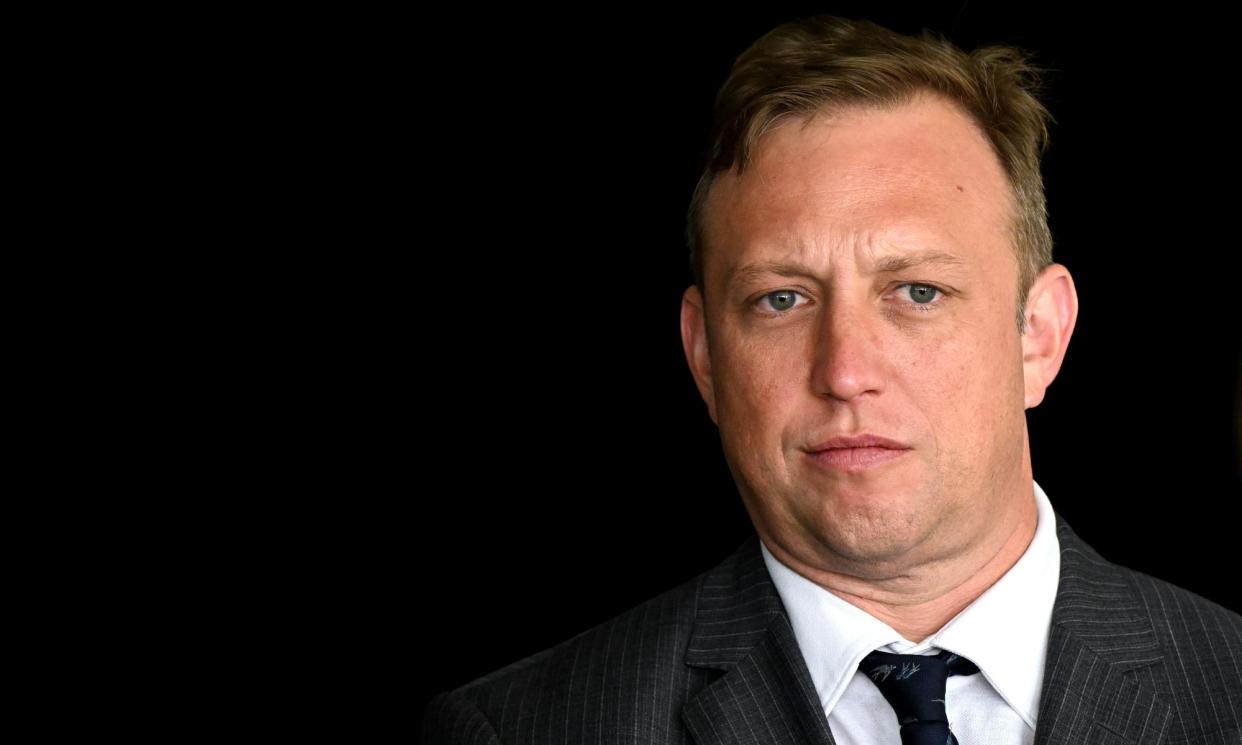Queensland Labor’s lurch to the right on youth justice shows a government that’s lost principles and perspective

Late on Tuesday night, the Queensland government called youth organisations and other social service providers to parliament house for a confidential briefing about changes to the Youth Justice Act.
Four senior ministers – including the premier, Steven Miles - walked through the doors. Attendees describe what happened next as “like an ambush”.
Multiple sources say the ministers justified the changes – to erase the human rights principle of “detention as a last resort” for children – as necessary to stop ongoing political attacks by the Liberal National party.
Related: Queensland Labor to remove principle of detention as last resort from Youth Justice Act
There it is. The quiet part out loud. Confirmation to many of those present that this is not just a government on life support; it’s a government that has lost all perspective, deluded in the belief that – by borrowing the hardcore policies of its opponent – it remains somehow a more palatable choice.
What Miles and Labor have inadvertently proved, again, is that the party is willing to abandon long-held principles and evidence-based policy in the face of an election defeat.
In 2019, the youth justice minister, Di Farmer, told the state parliament she knew that if the state took a punitive approach to young offenders, there was an “almost 100% chance” they would reoffend.
Months later, with the 2020 election on the horizon, the government changed bail laws to introduce a presumption against bail for some children. The flow-on impact was more children in youth detention and police watch houses, where conditions have worsened.
Farmer’s prediction came true: experts say many of the youth justice issues in communities are because children in custody are offered little schooling or rehabilitation and inevitably reoffend.
Labor politicians repeatedly rubbished the LNP’s policy to introduce an offence for “breach of bail”. Then they suspended the Human Rights Act and adopted the policy. In Cabinet last year, the police minister, Mark Ryan, walked in with a powerpoint and argued that the changes were needed to stop political attacks by the LNP.
“Every news story about another incident would come with a line from the LNP saying the solution was [for] breach of bail [to be made an offence for children],” a Labor minister said at the time.
“Now [if the LNP campaigns on youth crime at the election] we can turn around and say, ‘well, we did what you wanted us to do’.”
Of course, that didn’t work. The opposition leader, David Crisafulli, turned his attention to the idea of “detention as a last resort”. He talks about it on an almost daily basis, particularly in regional cities like Townsville and Cairns.
Earlier this year, Miles was defiant about the need to use detention only as a last resort for children. He said: “All of the evidence suggests that if you detain offenders for low-level offences you expose them to hardened criminals, you expose them to gangs, you make it much more likely they will reoffend.
“But that LNP policy is incredibly dangerous... you’d actually make the situation worse,” Miles said.
It’s now Labor policy, too.
Labor sources say the youth crime debate has become so constant and damaging that the party desperately needed some clear air to sell other policies. There’s a belief that Crisafulli is walking into office with no detail or substance behind his attack lines.
“We need to get back to fighting on other issues,” one MP said. “We can’t win an election on youth crime. We just need to move on”.
Last month, a “bipartisan” committee looking at youth justice policy collapsed. Establishing the committee in the first place was a government strategy to attempt to neutralise the youth crime issue.
The logic of then premier Annastacia Palaszczuk was to establish a sort of war cabinet, adopt its recommendations and move on with a suite of policies endorsed by the LNP. But six months before the state election – and to no one’s shock – the major parties couldn’t agree on a way forward and the committee disbanded.
The idea that the LNP will simply take its win and move on to other issues defies logic.
Related: Queensland’s $1.28bn community safety plan includes transporting detained children for schooling
Meanwhile, there are real-world consequences to any decision that has the impact of putting more children into custody. The number of children in adult police watch houses – where they are being held for weeks on end due to overcrowding in detention – are higher than ever.
In February a 13-year-old boy was allegedly sexually assaulted in the Cairns watch house by an older, larger boy. Police admit they “cannot meet” expectations for young people while also dealing with adult prisoners. Psychologists have warned of incidents and deteriorating mental health conditions.
The youth justice minister knows it to be true. She said herself; these children are almost certain to reoffend. The premier knows it to be true. He said it himself; children detained for low-level offences are more likely to reoffend. Every lurch to the right on youth justice just makes our communities less safe.
The irony is inescapable. On Wednesday, morning, as the police minister introduced the bill, some year 6 children from a Brisbane state school walked into the legislative assembly chamber to watch the proceedings.
As is customary, MPs smiled up at the kids and waved. Then got on with the job of passing legislation that will put more kids their age – 11 and 12 – behind bars.


